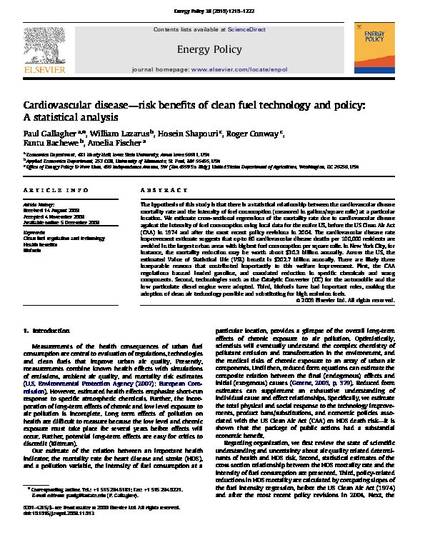
The hypothesis of this study is that there is a statistical relationship between the cardiovascular disease mortality rate and the intensity of fuel consumption (measured in gallons/square mile) at a particular location. We estimate cross-sectional regressions of the mortality rate due to cardiovascular disease against the intensity of fuel consumption using local data for the entire US, before the US Clean Air Act (CAA) in 1974 and after the most recent policy revisions in 2004. The cardiovascular disease rate improvement estimate suggests that up to 60 cardiovascular disease deaths per 100,000 residents are avoided in the largest urban areas with highest fuel consumption per square mile. In New York City, for instance, the mortality reduction may be worth about $30.3 billion annually. Across the US, the estimated Value of Statistical Life (VSL) benefit is $202.7 billion annually. There are likely three inseparable reasons that contributed importantly to this welfare improvement. First, the CAA regulations banned leaded gasoline, and mandated reduction in specific chemicals and smog components. Second, technologies such as the Catalytic Converter (CC) for the automobile and the low particulate diesel engine were adopted. Third, biofuels have had important roles, making the adoption of clean air technology possible and substituting for high emission fuels.
Available at: http://works.bepress.com/paul-gallagher/13/

This article is from Energy Policy 38 (2010): 1210, doi: 10.1016/j.enpol.2009.11.013.